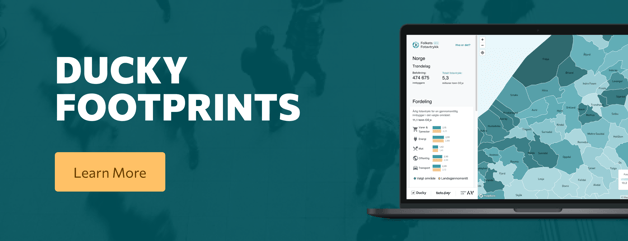Searching for standouts in the IPCC Report
Let’s face it, IPCC reports are never a fun read. They’re a damming assessment of our ability to take care of the only planet we’ve got.
Piecing through them to find the key takeaways is likewise a tough task, but since the final report (for this round) has now been submitted, I thought I’d reflect on what I’ve learned going through each step of the report over the last year.
A reminder for those not too familiar with the concept of the IPCC Report. While each of the three publications we’ve had over the past 9 months have been treated as individual reports by many, they’re in fact the output of three separate working groups.
Working Group One (which came out in August last year) addresses the physical science, Working Group Two (this last February) the impacts on our societies and ecosystems, and Working Group Three (last month) the mitigation strategies we can take going forward.
Climate literacy is a must
Systemic change is obviously key to halting the onset of climate change, but there were a few key phrases that made me (and should make anyone who write about science on a regular basis) pay attention.
One was the call for added climate literacy at all levels. The report highlights this as crucial, as better understanding of the impact and mitigation of climate change from the public ensures that efforts to halt the onset of climate change aren’t hindered by a lack of public support.
We often point out how important systemic change is (and don’t get me wrong, I still believe it’s the most important factor), but the new report also pointed out that bottom-up change is also crucial. We need to making people more aware of the facts surrounding climate change by utilising better educational programs, local and Indigenous knowledge and the arts (and much more).
This can produce better awareness of not only the risks of climate change, but what we as individuals can do to lower our footprints while fighting for that necessary systemic change.
The economics of it all
I wrote recently about how while the economy is often cited as being higher priority than the climate, the reality is that climate change is already inflicting severe economic damage globally, and will only get (much) worse. The most recent Working Group backs this up, stating that the economic gains we will see from mitigating climate change will likely outstrip what it will cost to do so.
There’s also the added financial benefits from the improvements in human health we will gain from living more sustainably. Improvements in air quality alone mean that failing to acting on climate change doesn’t save the economy, it ensures its demise.
On the jobs front, Working Group III points out that any job losses are likely to be minimal. What the fight against climate change will require is substantial job reallocation. Yet job reallocation is something that we have solutions for, unlike the prospect of an unlivable planet.
While we’re on the economic front, it’s worth noting that the report states that households in the top 10% of income contribute 36-45% of global greenhouse gas emissions. So if you’re part of that 10%, please start looking for ways to reduce your footprint.
Energy access worldwide
One enormous positive to the entire report was this header to a relatively small paragraph.
Providing access to modern energy services universally would increase global GHG emissions by a few percent at most.
Working Group III’s Technical Summary, page 27
This is an encouraging reminder that the global energy crisis can be solved without burdening the planet further. As the report puts it, providing the energy to support ‘decent living standards’ should not be something we shirk away from, not when we could easily make up that couple of percent by implementing more renewable strategies elsewhere.
You're making things sound kind of positive...
Unfortunately they’re not. We are in the midst of a rapidly closing window to act on climate change. Keeping the global temperature rise below 1.5 degrees is an increasingly forlorn hope. Drastic action needs to be taken, and unlike most countries’ attitudes to COVID, the changes we make will almost certainly need to be permanent.
But the message is, as it has always been, that the changes we make now far outweigh the damages we would otherwise have to suffer in the future. So let’s get moving.

.jpg?)